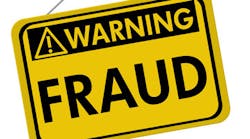Whistle-blowing and dental fraud: It starts with listening to your team
Interoffice dynamics play a role in whether whistle-blowers will come forward. Too often, the employee perpetrating the fraud is the most trusted person in the organization.
As an example, I was once asked to assist a dental practice in understanding why they were seeing so many patients, but those patient visits weren't resulting in more cash in the bank. I met the long-time office manager "Linda," who assisted in my efforts. It didn't take long to see how loved Linda was by the dentist and his wife. She was not only the beloved office manager, she was practically a member of their family.
Unfortunately, it also didn’t take long for me to figure out that Linda was stealing their cash.
As the engagement turned into an investigation and I began talking to the dental assistants, I learned that they had all seen suspicious activity, from Linda throwing away most of the monthly statements and not mailing them, to phone calls from patients questioning why their payments were not applied to their bills.
When I asked why they saw these things but didn’t say anything, they all told me the same thing: “I didn’t think the doctor would believe me, and I didn’t want to lose my job.”
Occupational fraud in dental offices
It’s unfortunate that insider fraud exists in every profession, and the dental industry is no exception. On average, all businesses lose 5% of their gross revenue annually. For a $2 million practice, this equals $100,000!
One of the best lines of defense against fraudulent behavior is to instill a culture of accountability, honesty, and ethics. Dentists should model and encourage honest and ethical conduct, be open to hearing reports of questionable behavior, and immediately investigate suspicious activity, no matter who might be involved. Most importantly, staff should be assured that there will not be any form of retaliation against an employee who raises a concern or reports a complaint.
Few things feel worse than learning the practice has lost money or assets. Aside from the financial loss, detecting fraud is mentally and emotionally draining and can negatively impact a dentist’s reputation if it’s not handled correctly.
Here are 10 helpful tips to consider when occupational fraud occurs.
1. Understand it won’t be solved today— . . . or overnight, or even next week. The medican time for fraud to go undetected is 16 months, so unraveling the complexities will take time.[3] Calm heads prevail, so take a deep breath and stay focused.
2. Document key events and communications—If emotions are running high, it can be easy to forget details or the sequence of events. Write down everything to help you remember when things were uncovered and how. Include who the tipster is, how the fraud was discovered, and any conversations with the suspect. Also include any interviews with key witnesses, attorneys, or insurers. No detail is too minor, and this will be critical for law enforcement and forensic accountants to understand what happened.
3. Secure access to the computer and office—If the suspect has remote access to email or logins, disable access. Confiscate any keys or cards used to access the office and change the locks and security codes.
4. Lock the computer or electronic devices in a safe—Do not turn on the computer or repurpose it for a new employee. Take all of these items, store them in a safe, and make sure no one can access them. This is a critical step to ensure that potential evidence isn’t compromised or destroyed. Treat this time frame as an emergency triage, and don’t trust anyone yet. Once the devices are secured, run a backup for that night in particular and store a copy in the safe.
5. Safeguard key documents—Ensure that crucial source documents such as bank statements, canceled checks, insurance remittances, deposit slips, and payroll reports are turned over to the forensic accountant.
6. Contact key individuals—Upon notification of potential fraud, dentists should alert any business partners or other office leads to the breach, as well as communicate the proactive steps being taken to control loss. Until the investigation is complete, those notified should be on a “need to know” basis only.
7. Seek legal counsel and contact the insurance company—Employment laws are critical in fraud cases, from whether to place an employee on leave or terminate the person altogether. Reach out to an employment law attorney to gain advice at this critical moment. Call the insurance company to inquire about whether the business's policy has employment dishonesty insurance or a fidelity bond. If so, it will be essential to know what the limits are and if the plan will cover professional fees for legal counsel and forensic investigation.
8. Think about the end game—Decisions don't need to be made quickly, but do think about the outcome, such as whether one or more employees will be terminated, whether prosecution is possible, and whether an insurance claim will be filed. Understanding the end goal will help map a path forward.
9. Consult a forensic accountant—Most businesses are accustomed to working with a CPA, but to properly conduct an investigation into financial fraud requires specific expertise. Forensic accountants understand the procedures to protect and document evidence, how to write reports, and how to provide legal testimony.
10. Mitigate future risk—Educate staff to understand the risk of fraud, how to spot the “red flags” of fraud, and how to report behavior traits and suspicious behavior.[4] It’s also important to make sure the practice has appropriate internal controls and proper segregation of duties.
Discovering fraud can have a devastating effect on the practice and its employees, and leave many dentists unsure of how to move forward and regain control. By openly encouraging whistle-blowing and having a plan in place for reacting to fraud discovery, dental practitioners can focus their attention on what they do best—helping patients.
RELATED READING
Dental practice fraud: Beyond the red flags
True Dental Fraud: The Westerner
The aftermath of fraud begins before it takes place
For the most current practice management headlines, click here.
For the most current dental headlines, click here.
References
[1] Patrick PA. “Be Prepared Before You Blow the Whistle,” Association of Certified Fraud Examiners, September/October 2010. Accessed April 24, 2018.
[2] 2018 Report to the Nations. Copyright 2018 by the Association of Certified Fraud Examiners, Inc.
[3] 2018 Report to the Nations. Copyright 2018 by the Association of Certified Fraud Examiners, Inc.
[4] 2016 Report to the Nations, “Behavioral Red Flags,” Copyright 2016 by the Association of Certified Fraud Examiners, Inc.

